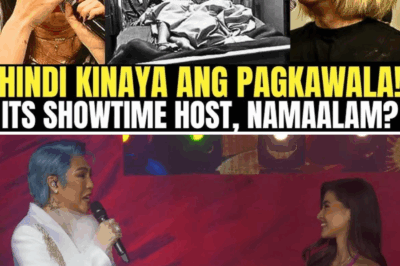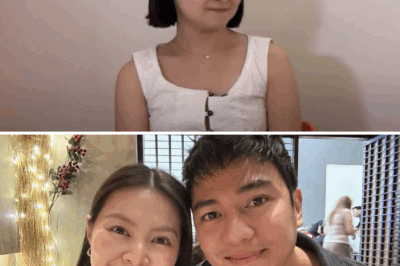Maria Sofia Love Sparks Outrage Over Disrespectful Act Toward Philippine National Anthem
Controversial internet personality and transgender influencer Maria Sofia Love has once again found herself at the center of national outrage following a widely criticized video in which she was seen disrespecting the Philippine national anthem, “Lupang Hinirang.” The incident has drawn condemnation from citizens, government officials, and the LGBTQ+ community, triggering discussions on patriotism, decency, and the responsibilities of public figures in the age of social media.
A Viral Video Sparks a Storm
The controversy erupted when a video surfaced on social media showing Maria Sofia Love dancing provocatively while the national anthem was playing in the background. What shocked viewers even more was her placement of her right hand—not on her chest as a traditional sign of respect—but on her private area while swaying to the beat.
Though many of her videos are known for their flamboyance and comedic tone, this particular performance was deemed offensive and inappropriate by a large portion of the public. The video quickly went viral, drawing tens of thousands of reactions and shares across platforms like Facebook, TikTok, and X (formerly Twitter).
Public and Official Backlash
The backlash was swift and intense. Citizens from all walks of life voiced their disappointment, describing the act as disrespectful and an affront to Filipino values.
The National Historical Commission of the Philippines (NHCP) responded formally by sending a request to the Department of Foreign Affairs (DFA) urging the possible cancellation of Maria Sofia Love’s Philippine passport. The NHCP cited Republic Act No. 8491, also known as the Flag and Heraldic Code of the Philippines, which prescribes proper conduct during the playing of the national anthem and sets penalties for violations.
Under the law, improper behavior while the anthem is played is considered a punishable offense, with fines ranging from ₱5,000 to ₱20,000 or imprisonment of up to one year, or both.
In a statement, the NHCP noted:
“The national anthem represents our sovereignty and the struggle of our forebears. To use it in jest or in a manner that trivializes its significance is a violation not only of the law but of national dignity.”
LGBTQ+ Community Voices Concern
Interestingly, criticism didn’t come solely from government institutions or conservative citizens. Leaders within the LGBTQ+ community, particularly in Cauayan City, Isabela, where Maria Sofia Love is known, also denounced the act.
In a joint statement, local LGBTQ+ organizers said:
“We advocate for self-expression and equality, but that freedom must not come at the cost of disrespecting national symbols. Maria Sofia Love’s actions do not represent our values as a community.”
They emphasized that being part of a marginalized group does not exempt someone from accountability, especially when their actions can reflect negatively on an entire movement.
Maria Sofia Love Responds: “Just for Fun”
In response to the outrage, Maria Sofia Love released a public apology via her social media accounts. She claimed the video was created “just for fun” and had no intention of offending anyone.
“I was just being playful. I didn’t mean to disrespect the flag or the anthem. I now realize it was inappropriate, and I truly apologize to everyone who felt hurt or disrespected,” she said.
She also opened up about the consequences she’s already facing, including being unfollowed by close friends and feeling distanced from members of her own community. Despite the criticism, she expressed hope for understanding and forgiveness.
A Teachable Moment in the Age of Influence
The incident has reignited conversations around social media responsibility, particularly for influencers and public figures. In an era where a single post can reach millions within minutes, many argue that digital content creators must exercise discretion and cultural sensitivity.
Analyst and media expert Dr. Emilia Tadeo commented on the issue:
“This case is a reminder that humor and entertainment must be balanced with respect, especially when dealing with national identity and heritage. Public figures must recognize that influence comes with accountability.”
Conclusion: Between Expression and Respect
Maria Sofia Love has long been a polarizing figure—celebrated by some for her boldness and criticized by others for her outlandishness. But this latest controversy has shown the fine line between personal expression and public disrespect.
While her apology may help soothe tensions, the legal and social consequences may continue to unfold in the weeks ahead. At its core, the incident is a powerful reminder that freedom of expression does not excuse cultural insensitivity, and even in the digital age, national symbols remain sacred to many.
If you’d like this formatted into a magazine layout or turned into a video script or podcast version, I can help with that too!
News
Ang Huling Hiling ng Bilanggo ay Makita ang Kanyang Aso — Ngunit Nang Kumawala ang German Shepherd at Tumakbo Papunta sa Kanyang Yakap, May Nangyaring Hindi Inaasahan…
Ang Huling Hiling ng Bilanggo ay Makita ang Kanyang Aso — Ngunit Nang Kumawala ang German Shepherd at Tumakbo Papunta…
Isang ina ang nalunod at dinala sa bahay para ilibing – ngunit nang isara nila ang kabaong, biglang sumigaw ang kanyang 5-taong-gulang na anak: “Sinabi ni Nanay na hindi siya iyon!”
Sumigaw ang 5-taong-gulang na bata, “Hindi iyan si Nanay!” Habang malapit na nilang i-seal ang kabaong – ang kanilang natagpuan…
Isang kilalang gangster ang nag-abuso sa isang flight attendant habang nasa himpapawid – hindi niya alam na ang isang hakbang lamang ay sisirain ang kanyang buong buhay …
Isang kilalang gangster ang nag-abuso sa isang flight attendant habang nasa himpapawid – hindi niya alam na ang isang hakbang…
ISANG MAGANDANG KASAMBAHAY ANG AKSIDENTENG NATULOG SA KUWARTO NG BILYONARYO
Nagsisimula pa lang si Alma sa kanyang shift sa marangyang hotel kung saan siya nagtatrabaho bilang kasambahay. Siya ay bago,…
SHOCKING FAREWELL! Vice Ganda and Anne Curtis were left in TEARS as they witnessed their dear friend’s emotional goodbye. What really happened will leave you speechless—GRABE ITO!
HEARTBREAKING FAREWELL! 😭 VICE GANDA & ANNE CURTIS IN TEARS AS THEIR FRIEND SAYS GOODBYE — GRABE ITO! A Nation…
HEARTBREAKING CONFESSION! 😱 Barbie Forteza breaks her silence—revealing her health is failing and time may be running out. Her words will leave fans in TEARS…
Barbie Forteza on her healing journey: ‘Mas naniniwala na ako sa sarili ko ngayon’ Kapuso actress Barbie Forteza shared how…
End of content
No more pages to load












